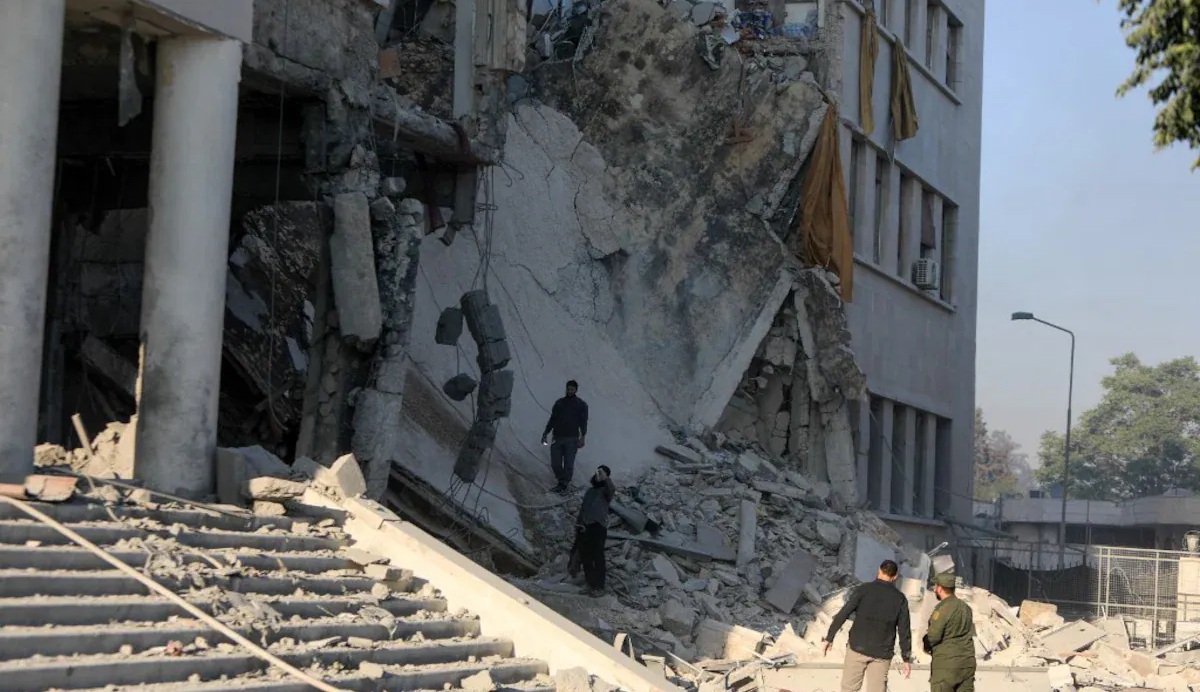For the third consecutive day, Israel launched strikes on Syrian military installations in Damascus and government positions in southern Syria, intensifying tensions amid a wave of deadly sectarian violence in the predominantly Druze province of Suweida.
Israeli Prime Minister Benjamin Netanyahu defended the strikes by asserting that Israel was acting to protect the Druze community, which has strong cultural and familial links to Druze populations in Israel and the Israeli-occupied Golan Heights.
He emphasized the government’s resolve to shield their “Druze brothers” from harm.
The escalation comes as fierce fighting between local Druze militias and Bedouin tribes has gripped Suweida since Sunday, leaving over 350 people dead, according to monitoring groups.
In response to the violence, the United States brokered what it described as concrete steps to halt the bloodshed.
U.S. Secretary of State Marco Rubio stated on X (formerly Twitter) that an agreement had been reached to end the crisis “tonight.”
Syria’s state media outlet, Sana, reported that troops began withdrawing from Suweida as part of an agreement negotiated between government officials and Druze religious leaders.
This followed the army’s stated mission to neutralize “outlaw groups.”
Syria’s foreign ministry welcomed U.S. and Arab efforts to resolve the unrest diplomatically, while also accusing Israel of intentionally escalating tensions.
Israel’s air campaign, which began Monday, marked a significant military move following the Syrian government’s redeployment of troops to Suweida.
It marked their return to the province for the first time since Sunni Islamist rebels overthrew President Bashar al-Assad late last year.
Interim President Ahmed al-Sharaa condemned the Israeli strikes as a “large-scale escalation.”
Skepticism toward Sharaa remains high among Syria’s minority groups, particularly the Druze, whose religion, though rooted in Shia Islam, maintains a distinct spiritual identity.
Their distrust of the central government has deepened amid months of intermittent sectarian violence, most notably in May, when Druze fighters clashed with Syrian forces and allied Islamist militias.
To ease tensions at the time, the Syrian government authorized the formation of local Druze-led security units.
However, these groups’ continued influence in Suweida has ignited conflict with Bedouin tribes who reportedly receive support from Damascus.
The Israeli government maintains that its current operations aim to compel Syrian troops to exit Suweida.
Defense Minister Israel Katz announced that “the warnings in Damascus are over” and vowed to continue targeting forces that had threatened Druze civilians.
Footage shared by Katz depicted a Syrian news presenter ducking for cover during an Israeli airstrike near the defense ministry in central Damascus.
Israel also targeted a military location near the presidential palace, signaling a stern message to President Sharaa.
Additional strikes were carried out on armoured convoys en route to Suweida, as well as weapons depots and firing positions in southern Syria.
Syria’s foreign ministry denounced the Israeli actions as violations of international law, claiming the bombings hit civilian infrastructure and resulted in multiple non-combatant deaths.
They accused Israel of deliberately stoking instability and chaos throughout Syria.
According to the UK-based Syrian Observatory for Human Rights (SOHR), the humanitarian situation in Suweida has deteriorated dramatically.
The group reported that hospitals were attacked, water supplies were running low, and medical resources were scarce.
Syrian health officials later confirmed discovering numerous bodies inside the Suweida national hospital after government troops reclaimed it.
Eyewitnesses recounted chilling scenes of snipers firing on civilians and residents unable to transport wounded people due to ongoing fighting.
Reports of looting, arson, and extrajudicial killings by government forces have further inflamed public outrage.
SOHR estimates that the death toll in Suweida since Sunday includes 79 Druze militia members, 55 civilians.
It also includes at least 189 Syrian troops, with an additional 18 casualties among Bedouin fighters.
The conflict reportedly began with the kidnapping of a Druze merchant, prompting Druze militias to seize a Bedouin neighborhood in Suweida city, triggering a wider tribal backlash.
Earlier this year, Netanyahu demanded the full demilitarization of Suweida and neighboring provinces.
He cited the threat posed by President Sharaa’s association with the Islamist group Hayat Tahrir al-Sham (HTS), a former al-Qaeda affiliate still designated as a terrorist group by the UN and UK.
Israel has conducted numerous airstrikes across Syria since Assad’s ouster and deployed forces into the demilitarized zone bordering the Golan Heights.
The latest developments suggest a dangerous convergence of regional rivalries, domestic unrest, and international intervention.







